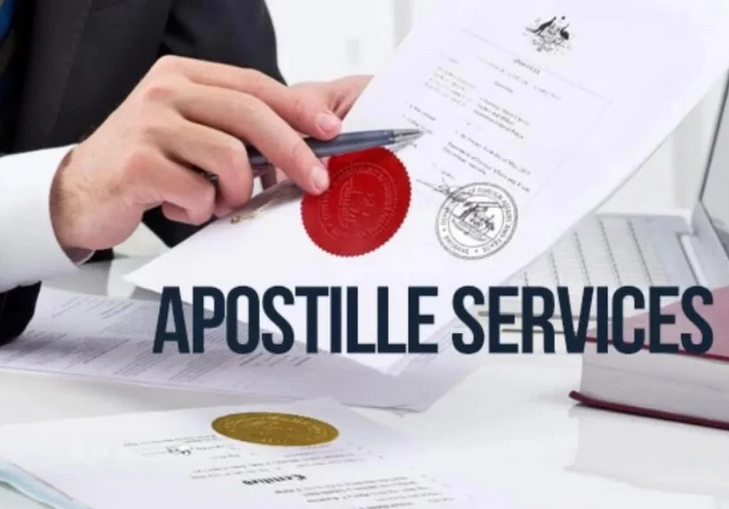Looking Into the Factors Behind the Compulsory Need of Apostille Qualification for Legal Documents
In the world of lawful documents, the required need of apostille qualification has actually come to be an essential aspect that significantly impacts the credibility and acknowledgment of legal papers on an international range. Recognizing the reasoning behind this requirement includes delving right into the detailed internet of legal complexities, historic criteria, and worldwide contracts that underscore the importance of apostille qualification in today's interconnected globe. By checking out the underlying reasons behind this widespread need, a clearer picture arises of why this apparently administrative process holds such tremendous relevance for organizations, governments, and individuals alike.
Historic Advancement of Apostille Qualification
Just how did the idea of apostille accreditation advance over time to end up being a vital component of global paper validation? The need for a simplified approach of confirming documents for usage across boundaries came to be apparent as worldwide trade and traveling raised.
At first taken on by a few European nations, the Apostille Convention gradually got worldwide approval as a result of its performance and efficiency in verifying the authenticity of official papers. Over the years, the convention's reach increased as even more countries joined, recognizing the apostille as a globally approved kind of record authentication. Today, apostille accreditation has actually ended up being a common demand for verifying lawful papers in worldwide purchases, guaranteeing smooth communication and legal procedures between nations.
Simplifying International Record Legalisation
The streamlining of worldwide record legalization procedures has actually substantially boosted effectiveness in cross-border deals. Streamlining the process of legalizing records for international use has come to be important in facilitating swift and smooth transactions in between nations. Among the crucial devices that have actually added to this simplification is the adoption of the Apostille Convention, which gives a standard method for verifying the authenticity of documents across getting involved countries.
By adhering to the Apostille demands, countries consent to acknowledge each various other's public documents as valid without the requirement for more legalisation. This removes the extensive and often difficult procedure of several verifications by different authorities, conserving time and resources for companies and people participated in global activities.

Making Sure File Credibility and Credibility
To make sure the credibility and validity of lawful papers in global transactions, rigorous verification processes are crucial - Houston Apostille. Legal documents play a vital duty anchor in cross-border transactions, and guaranteeing their legitimacy is extremely important to maintain the honesty of such deals. By visit site requiring apostille certification for lawful documents, authorities intend to confirm the origin of documents and confirm the trademarks of people entailed. This procedure assists prevent fraud, misrepresentation, and other malpractices that might endanger global contracts or lawful process.
Moreover, confirming the credibility of lawful documents via apostille qualification improves trust fund and confidence among parties engaging in global transactions. It gives guarantee that the papers presented are genuine and legitimately binding, thus lowering the dangers related to illegal tasks. Furthermore, guaranteeing record credibility via apostille qualification streamlines the legalization process, making it more effective and trustworthy for companies and individuals conducting organization across borders. Eventually, by upholding rigorous verification standards, apostille qualification adds to a more transparent and safe international lawful framework.

Assisting In Cross-Border Legal Acknowledgment
In the realm of international deals, the apostille accreditation not only ensures the credibility and validity of legal records yet likewise plays a crucial function in helping with cross-border legal acknowledgment (Houston Apostille). When lawful documents birth an apostille certificate, they are readily approved by international authorities without the demand for further confirmation. This streamlined process expedites the acknowledgment of papers in various countries, promoting effectiveness and decreasing bureaucratic obstacles in legal issues that go beyond national limits
Assisting in cross-border lawful acknowledgment via apostille certification cultivates trust and confidence in the credibility of files traded between countries. By sticking to the standards established forth by the Apostille Convention, nations concur to honor the apostille seals attached to files from other participant countries, thus streamlining the procedure of lawful recognition throughout borders.
Conformity With International Treaty Standards
Conformity with international treaty standards is crucial for making certain the consistent application of lawful laws across getting involved nations. The Apostille Convention, established in 1961, details the requirements for the acceptance of public records among participant nations. By sticking to the standards set forth in this treaty, countries devote to identifying the legitimacy of each other's certification without the requirement for additional authentication - Houston Apostille. This mutual approval enhances the procedure of cross-border record acknowledgment, advertising performance and minimizing bureaucratic difficulties.
The Apostille certification, as mandated by the treaty, acts as an assurance of authenticity for papers such as birth certifications, marital relationship licenses, court judgments, and notarized acts. This standard approach assists protect against fraud and makes certain that legal papers originating from one member country are conveniently approved in another. Additionally, by adhering to global treaty requirements, nations demonstrate their commitment to promoting the concepts of transparency, count on, and participation in lawful issues on an international range.
Conclusion

In the realm of lawful documentation, the required requirement of apostille accreditation YOURURL.com has actually come to be an important element that dramatically impacts the credibility and acknowledgment of lawful documents on an international scale. Today, apostille accreditation has actually come to be a standard demand for confirming lawful documents in global transactions, guaranteeing smooth communication and legal procedures between countries.
Additionally, validating the authenticity of legal files via apostille qualification enhances trust fund and confidence amongst celebrations engaging in international deals.In the realm of worldwide transactions, the apostille accreditation not only guarantees the authenticity and credibility of legal files however also plays a critical role in facilitating cross-border legal acknowledgment. By sticking to the requirements set forth by the Apostille Convention, nations agree to recognize the apostille seals attached to papers from other member nations, hence simplifying the process of lawful acknowledgment across borders.